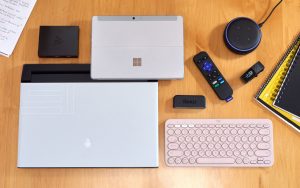The final two regions of the UK now comprise an legitimate coronavirus contacts tracing app, after the UK authorities pushed the button to commence the NHS COVID-19 app all over England and Wales at the unique time.
Northern Ireland and Scotland launched their very possess legitimate apps to automate coronavirus publicity notifications earlier this year. However the England and Wales app was delayed after a fallacious originate encourage in Would possibly perhaps additionally. The key level is that the model that’s launched now has an fully assorted app structure.
All three of the UK’s legitimate coronavirus contacts tracing apps fabricate spend of smartphones’ Bluetooth radios to generate indicators of possible publicity to COVID-19 — in accordance to estimating the proximity of the devices.
A extraordinarily condensed model of how this works is that ephemeral IDs are exchanged by devices that come into conclude contact and kept in the community on app users’ phones. If an particular person is due to this reality identified with COVID-19 they’re in a jam to utter the scheme, via their public smartly being authority, that can broadcast the relevant (i.e. ‘risky’) IDs to all assorted devices.
Matching to glimpse whether an app particular person has been uncovered to any of the risky IDs additionally takes discipline in the community — which formulation publicity indicators are now not centralized.
The utilization of this decentralized, privacy-retaining structure for the NHS COVID-19 app is a foremost shift vs the long-established app which was being designed to centralize files with the general public smartly being authority.
Alternatively the authorities U-turned after a backlash over privacy and ongoing technical problems linked to seeking to hack its formulation spherical iOS limits on background entry to Bluetooth.
Switching the NHS COVID-19 app to a decentralized structure has allowed it to lunge into coronavirus publicity notification APIs developed by Apple and Google — resolving technical problems connected to machine detection which precipitated problems for the sooner model of the app.
In June, the authorities urged there comprise been points with the APIs connected to the reliability of estimating distance between devices. Requested referring to the reliability of the Bluetooth technology the app is outmoded on BBC Radio 4’s Nowadays program this morning, smartly being secretary Matt Hancock talked about: “What every person knows for absolute certain is that the app won’t train you to self isolate because you’ve been in conclude contact with somebody except you’ve gotten been in conclude contact. The accuracy with which it does that is growing forever — and we’ve been working very carefully with Apple and with Google who’ve done a big job in working to manufacture this happen and to manufacture certain accuracy is continually improved.”
The smartly being secretary described the app as “an crucial instrument as smartly as to the total assorted tools that we comprise” — adding that one of the explanations he’d delayed the commence except now was because he didn’t have to commence an app that wasn’t effective.
“Each person who downloads the app may be serving to to guard themselves, serving to to guard their loves one, serving to to guard their community — for the explanation that extra other folks that obtain it the extra realistic this could occasionally even be. And this can abet to defend us safe,” Hancock went on.
“One among the issues that we’ve learnt over the route of the pandemic is where other folks are inclined to comprise conclude contacts and in point of fact the app that we’re launching at the unique time will abet to salvage extra of these conclude contacts,” he added.
The England and Wales app does comprise about a of unfamiliar quirks — because the authorities has opted to pack in a whole lot of capabilities, pretty than limiting it to unbiased publicity notifications.
These bells & whistles encompass: possibility indicators in accordance to postcode district; a tool of QR code test-in at venues (which could well presumably be undoubtedly required by law to repeat a QR code for app users to scan); a COVID-19 symptom checker and take a look at booking characteristic — at the side of the flexibility to discover results via the app; and a timer for users who comprise been educated to self-isolate to abet them defend count of the need of days left earlier than they are able to come out of quarantine, with pointers supplied to “relevant advice”.
“[The app] allows you to without problems whisk to the pub or a restaurant or hospitality venue because you’ll likely be in a jam to then click on via on the QR code which automatically does the contact tracing that is now crucial,” talked about Hancock explaining the taking into account late about a of the further capabilities. “And it helps by explaining what the foundations are and the chance on your jam for other folks without problems and straightforwardly to be in a jam to reply to questions and search the advice of on the foundations so it has a total series of capabilities.”
It remains to be considered whether it was realistic product build to dawdle on all these extras — and QR code venue test-ins can even lift a possibility of advanced users. Alternatively the authorities’s good judgment appears to be to be that extra capabilities will encourage extra other folks to acquire the app and thereby enhance uptake and utility.
As soon as smartly-liked, the crucial venue QR codes will additionally effectively double as free adverts for the app so as that could well abet drive downloads.
Extra saliently, the Bluetooth publicity notification scheme is relying on an effective sorting out regime and can therefore be pointless in limiting the unfold of COVID-19 if the authorities can’t enhance coronavirus take a look at turnaround times — which it has been scuffling with in contemporary weeks, as foremost backlogs comprise built up.
Net law expert, professor Lilian Edwards — who was on an ethics advisory panel for the sooner, now defunct model of the England & Wales app — made this gift BBC Radio 4’s World at One program the day earlier than at the unique time.
“My foremost discipline is now not the app itself however the interplay with the sorting out time table,” she talked about. The app only sends out proximity warnings to the contacts on add of a certain take a look at. The whole notion is to make a choice contacts earlier than they fabricate indicators in that seven-day window when they gained’t be retaining aside. If exams are taking 5 to seven days to discover encourage then by that time the contacts will comprise developed indicators and can comprise to optimistically be retaining aside or reporting their indicators themselves. So if we don’t tempo up sorting out then the app is functionally pointless.”



